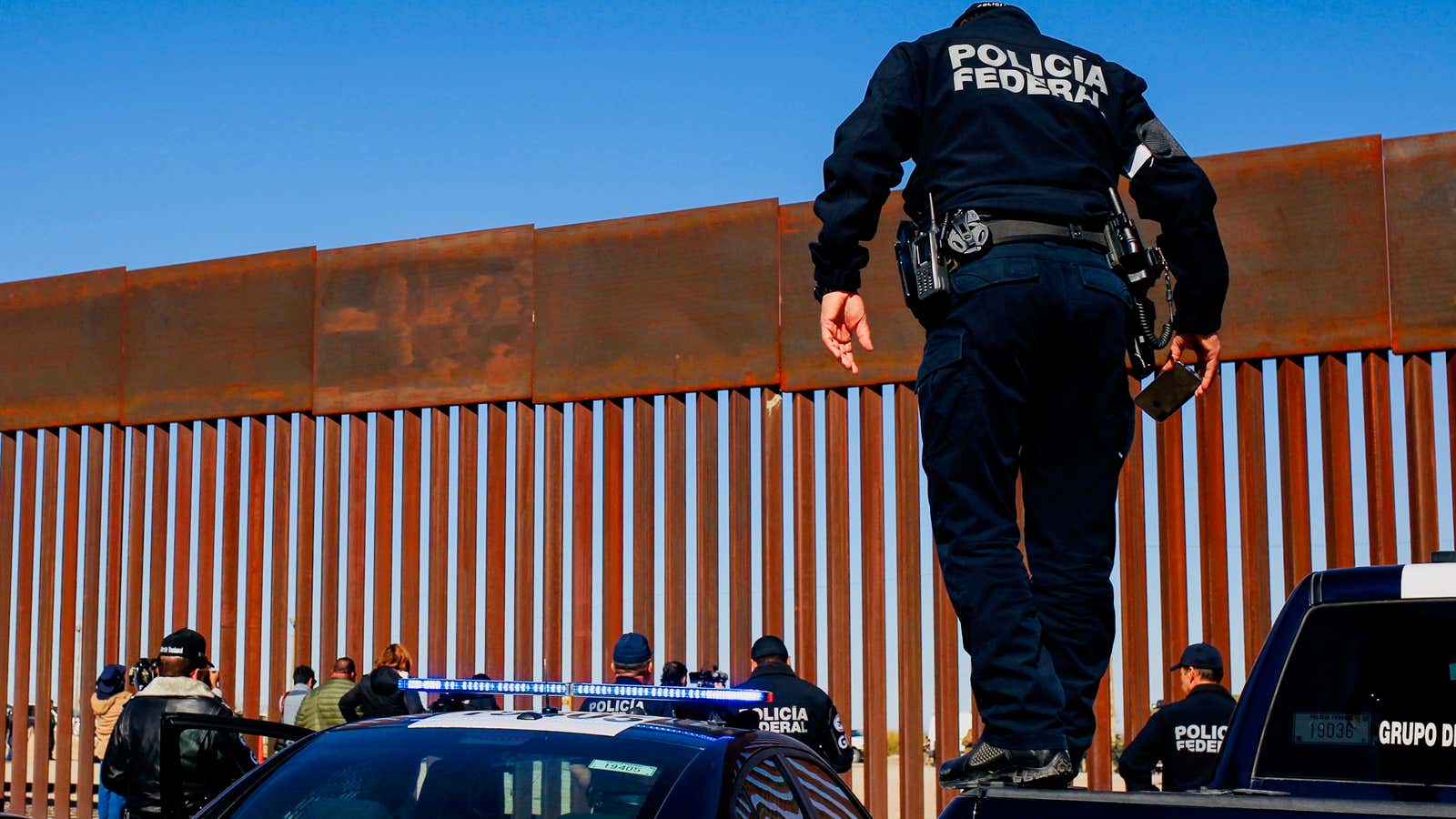Update (March 11): The Supreme Court granted the Trump administration’s request to stay an earlier injunction, allowing the so-called “remain in Mexico” policy to continue in the Ninth District.
The US Supreme Court is weighing another emergency relief request from the Trump administration, this time related to its “remain in Mexico” policy, officially known as the Migrant Protection Protocols (MPP). And the justices are pressed for time.
The policy allows the administration to send asylum seekers who pass through Mexico on their way to the US back to Mexico—a “contiguous territory”—where their applications are processed. Previously, removal for asylum seekers was not expedited and such claims were handled inside the US if an asylum applicant expressed a “credible fear” of return to their home country. Now, they are returned to Mexico promptly, where immigration advocates say some migrants also face persecution but don’t dare articulate such a fear at the US border.
Immigration advocates like the American Civil Liberties Union, which is representing asylum seekers returned to Mexico and groups that assist them, says MPP’s expedited process affords none of the procedural protections asylum seekers are normally given, employs a higher standard usually reserved for later in a case, and requires migrants to articulate their fears spontaneously and immediately, unlike previously when a less hurried approach allowed those seeking legal protection to consult with advocates and understand the process. “Indeed, five of the six judges who have reviewed the legality of MPP have expressed serious doubt about the legality of MPP’s fear procedures,” the ACLU stated in its reply brief to the high court on Monday.
On March 12, if the justices don’t grant the administration’s requested stay, the policy of returning asylum seekers will be temporarily halted in one part of the country, the Ninth Circuit. Specifically, people who make their way to the US borders in California and Arizona will not be subject to MPP, which was successfully challenged in a ruling recently upheld by the Ninth Circuit Court of Appeals.
The policy, announced in December 2018, and instituted early last year is arguably problematic. Early this month, a panel of appeals court judges agreed with a lower court that the MPP falls short of US and international obligations to asylum seekers and issued an injunction that will go into effect this week, restricting immigration officials from enforcing the policy in the circuit’s states. The administration is planning to appeal the ruling and wants the high court to stay that injunction while the petition for review is filed and—assuming the court takes the case—pending resolution of the matter.
This request comes after nearly a year of wrangling over injunctions. Last year, a district court issued a nationwide stay, barring application of the MPP policy. The government then successfully appealed the injunction and began implementing the policy throughout border states while the appeal over the substance of the policy proceeded.
That allowed the administration to turn away asylum seekers. The government argues that this new policy permits it to quickly sift through fraudulent and meritless claims and avoid lengthy incarcerations for Central American migrants who reach the US through Mexico. It claims MPP has helped relieve the “crisis” at the border.
But now that the Ninth Circuit has found MPP violates requirements for asylum seekers—ruling on the substantive claim as opposed to the earlier decision to stay the lower court’s injunction—the government is expected to halt the policy in the circuit’s states while a high court appeal is pending.
For the Supreme Court justices, the government’s emergency request comes at an awkward time. Earlier this month, Sonia Sotomayor wrote a scathing dissent, chiding her colleagues for granting this administration’s extraordinary number of emergency petitions. The court’s “shadow docket” has been unusually clogged in recent years as Trump officials turn to the high court like no administration before it. Sotomayor accused the government of circumventing the appeals process, taxing precious court resources, and abusing its position while arguing her colleagues were unfortunately willingly submitting to this unusual approach.
Last week, the Pentagon announced it was sending 160 additional troops to the border ahead of a possible surge of migrants if MPP is halted and its emergency request isn’t granted.
